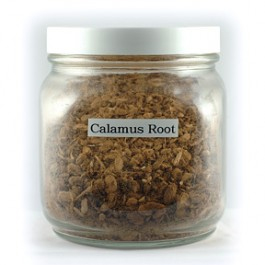As Heart Health Month comes to a close, we wanted to share 5 essential heart health habits. Be sure to take a look at our other posts for heart health and get tips for how to take proper care of your ticker. Proper nutrition, exercise and lifestyle are so important to achieving and maintaining optimum heart health. Take a look at how this is broken down into 5 easy steps.
Heart Health Habit #1: Get Moving!
Exercise is one of the best things you can do for heart health. Exercise helps to lower blood pressure and stress while raising HDL (good) cholesterol in your body. Getting up and moving for 30 minutes a day, 5 days a week seems like a lot of time to cram into your already busy schedule but do the best you can! Exercise is medicine for your heart and helps to promote weight loss and reduce the risk of many heart problems like stroke and heart attack. Take a walk on your lunch break, choose a parking spot far from the doors of a store, and find time to get moving to promote heart health.
Heart Health Habit #2: Diet! The Right Foods in the Right Amounts!
This is a big one, People! Harmful fats and sodium are two of the biggest culprits in heart disease, but it’s not enough to just cut out fat and salt from your diet. We actually need to look at the type and amount of fats and salt we consume. Trans fats or partially hydrogenated oils are the most dangerous types of fat and should be avoided whenever possible. They raise your bad cholesterol. These types of fats are most commonly found in processed food, including those that contain margarine and shortening, and items available from a fast food eatery menu. Saturated fats are also important to limit but these types of fats are actually very beneficial to the body in moderation. Butter and animal fat are healthy fats for the body because they are ‘real’ food. They support brain health. Healthier choices of fat for heart health are monounsaturated fats including avocado, olive, coconut and other nut oils. Salmon and other cold water fish are great for heart health! They contain important Omega-3 Essential Fatty Acids which help to lower LDL (bad) cholesterol levels. Studies have shown that people who consume a diet rich in Omega-3 Oils have a significantly reduced risk of developing heart disease. Make sure you are getting enough of these good fats!

Salmon and other coldwater fish are great for heart health.
Try making gradual changes to ensure success in this cut. For example, if you use heavy creams in your coffee, try stepping down to whole milk then 2% then 1% and finally, skim. Another good substitution would be incorporating a “Meatless Monday” into your weekly dinner plan to increase your intake of veggies and cut some of the saturated fats from your diet.
Too much sodium is also a contributing factor for heart disease. Sodium occurs naturally in foods (like the spinach you grow in your garden) but is added in mass amounts to foods that are processed. Canned, packaged, and prepared foods contain high levels of salt to help preserve the product and enhance the flavor. Our bodies need 500 milligrams of sodium each day to function properly and the fact is, we are getting so much more than this in our daily diets. A diet that is high in sodium can lead to atherosclerosis, heart disease, high blood pressure, high cholesterol levels. The problem again lies in the types of salt we choose. There is a big difference between real sea salt and processed table salt. Real salt contains trace minerals and elements and actually helps to regulate heartbeat and blood pressure and provide electrolyte balance. Himalayan pink salt and Celtic Sea Salt are two popular types of natural, health promoting salts. Processed salt is subject to high heat and has chemicals added (like anti-caking agents) which makes the salt harmful to the body. Sodium intake is important to monitor in general because it causes your body to retain water, forces your heart to work harder and leads to high blood pressure. Reduce the table salt and stick with the real salt!

Increasing vegetable intake is a great way to promote heart health!
Sugar consumption can also be a culprit in heart disease. Too much sugar contributes to hypertension, obesity, and can worsen diabetes control. Studies suggest that chronic high blood sugar levels may lead to hardening of the arteries. Sugar may also stress the heart muscle. Like sodium, sugar is added in abundance to processed foods and hides in everyday non-sugar foods like salad dressing, canned tomato sauce, crackers and even bread. Choose real food over processed food to support and love your heart!
Increasing consumption of fiber rich vegetables is also a great way to support overall heart health. Incorporate a ‘meatless Monday’ into your weekly dinner plan to increase your intake of veggies and cut some of the saturated fats from your diet. This works towards maintaining ideal body weight. Include all the colors of the rainbow and try for at least 1 vegetable with each meal.
Heart Health Habit #3: Control Stress!
We all face stress every single day. The body responds to stress by releasing a hormone called cortisol. The effects of cortisol are felt in a wide range of body systems. Your heart rate and breathing increase, blood pressure rises, and muscles tighten. Stress itself can be damaging but it also leads to other risk factors including over consumption of alcohol, poor sleep habits, overeating and getting less exercise. Learning to express & control emotions and manage stress is a good idea for your overall health and especially for your heart! A happy heart is a healthy heart! Have a positive attitude, practice daily relaxation, avoid excessive work hours, slow down, unplug, get good sleep, try not to do too many things at once, take deep breathes…and just love and accept yourself for who you are and know you are doing your best!
Heart Health Habit #4: Get Good Sleep!
The right amount of sleep is so important! Studies suggest that people who don’t get enough sleep are at higher risk for cardiovascular disease, regardless of age or weight. Lack of sleep can cause disturbances in the body’s biological processes like metabolism, blood pressure and inflammation and can contribute to increased coronary artery calcification. Sleeping a solid 7 or 8 hours a night is imperative to good heart health! Interesting enough getting too much sleep a night, 9 hours or more, may also contribute to risk factors for heart disease. A possible reason is that people who stay in bed longer are less active in general. Protecting your heart is one of the best reasons to get a good night’s sleep.
Heart Health Habit #5: Stop smoking and lower intake of alcoholic drinks

To stop smoking & cleanse, Hanna Kroeger recommended:
Boil ¼ cup calamus root for 20 minutes in 1 quart raw, unfiltered apple juice. Strain. Drink ½ cup whenever you have the craving to smoke or drink 6 oz. 3 times daily.
Smoking cigarettes is a major risk factor in cardiovascular disease. Smokers have 3-5 times the risk of coronary artery disease than non-smokers. Smoke contains more than 4,000 chemicals which are damaging to the lining of the arteries and contribute to high blood pressure. If you are working on a protocol to take care of your heart, then quitting smoking is imperative!
The impact of alcohol on your risk of heart attacks and strokes depends on how much and how often you drink. Excessive alcohol consumption, 6 drinks or more in 1 day, increases blood pressure and may damage artery walls. Heavy drinking is also linked to a higher risk of hypertension and irregular heart rhythms called arrhythmias. It also increases calorie intake which can lead to obesity. Moderate drinking (no more than 1 drink a day for women and 2 for men), however is associated with improvements in cardiovascular risk factors like cholesterol levels and heart rate. If you are trying to cut down on drinking, you may want to try taking Candida Liver Care. Hanna Kroeger taught that over consumption of alcohol often pointed to candida stuck in the liver. This herbal combination can help clean it out.
Heart health is important, no matter your age. While you may feel fine or consider yourself too young to experience difficulties with your heart, regular checkups are still important. The fact is that no one is too young or too healthy to have issues with their heart and taking the proper steps to ensure your diet and exercise plan are supporting your health is so important.
So get moving, eat real food, control the portions, manage stress, get good sleep and lower alcohol consumption. Achieve a balance between the risks and benefits of certain lifestyles. Make a list of your goals and make changes gradually. This is the key to creating the most successful protocol for a happy & healthy heart. Your heart will thank you and, through these changes, you’ll make heart health a part of your everyday life!
For a selection of our favorite products to promote heart health, check out our Heart Health Section and be sure to check out our other great posts for heart health including foods to incorporate into your diet for heart health, cutting stress, heart disease awareness for women, and “fun” foods to promote heart health!




Sea salt has 81 different minerals and vitamins, when its not processed it tastes better and is way healthier. I see what you mean though, salt can be too much for the heart.
You’re right, Elizabeth. We’re fans of sea salt ourselves but as a general rule of thumb–too much salt is too much for the heart. We’re glad we were able to get that point across! Thanks for your comment!
A Whole Body Approach to a Healthy Heart // Jan 31, 2013 at 6:18 pm
[…] 5 Easy Heart Health Habits […]
How to Reduce Your Risk of Heart Disease // Jun 13, 2013 at 11:54 am
[…] 5 Easy Heart Health Habits […]
Herbs for Longevity: Hawthorn Berries // Aug 5, 2013 at 1:22 pm
[…] Or, learn more about heart health. […]